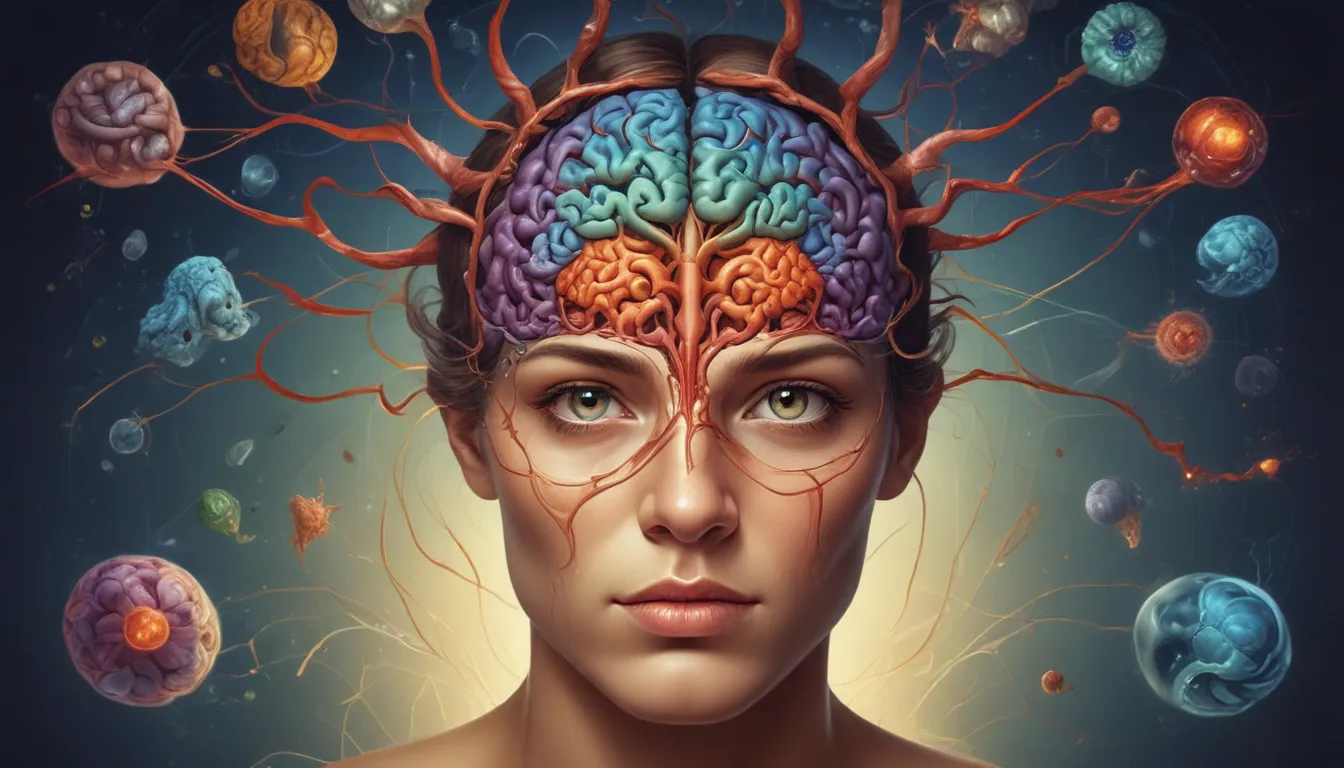A Note About Images: The images used in our articles are for illustration purposes only and may not exactly match the content. They are meant to engage readers, but the text should be relied upon for accurate information.
The limbic system, often referred to as the “emotional brain,” is a remarkable component of the human brain that significantly influences our emotions, behaviors, and memory formation. This intricate network of structures has intrigued scientists and researchers for decades as they strive to unravel its multifaceted functions and connections. In this article, we will delve into 13 astonishing facts about the limbic system that will broaden your understanding of the complexities of our brain and leave you in awe of its capabilities.
Unveiling the Wonders of the Limbic System
The limbic system serves as our brain’s own superhero, safeguarding us in threatening situations, guiding our decision-making processes, and even contributing to our sleep-wake cycle. It acts as a personal coach, molding our social behavior, memory formation, and emotional responses, shaping who we are and how we interact with the world.
The Intricate Structures of the Limbic System
Comprising various interconnected structures such as the amygdala, hippocampus, hypothalamus, thalamus, and cingulate gyrus, the limbic system plays a pivotal role in managing emotions and memories. Each structure contributes uniquely to different aspects of our emotional experiences and recollections.
The Limbic System’s Impact on Emotional Responses
The amygdala, a key component of the limbic system, is responsible for processing emotions and facilitating our responses to positive and negative emotional stimuli. It enables us to navigate a wide range of emotional experiences with varying intensities.
The Role of the Limbic System in Addiction
Studies suggest that the limbic system, particularly the reward circuitry involving the nucleus accumbens, contributes to addictive behaviors by inducing feelings of pleasure and reward associated with addictive substances and activities. Understanding this connection is vital in addressing addiction-related issues.
Emotional Learning and Memory Formation
Through emotional learning, the limbic system helps us associate emotional experiences with specific stimuli, enhancing our ability to navigate future situations effectively. This process is crucial for memory formation and the development of cognitive processes.
Influence on Social Behavior
The limbic system plays a significant role in shaping our interactions and behaviors within social contexts. It aids in recognizing facial expressions, interpreting social cues, and fostering empathy towards others, fostering meaningful connections and relationships.
Impact of Stress on the Limbic System
Chronic stress can disrupt the balance of emotional regulation within the limbic system, leading to mood disorders such as anxiety and depression. Maintaining emotional resilience and practicing stress management techniques are essential for preserving the well-being of this vital brain region.
Decision-Making and Cognitive Processes
Interacting with the prefrontal cortex, the limbic system mediates between rational thinking and emotional responses, influencing our decision-making processes. This intricate interplay shapes our choices and behaviors in various situations.
Controlling the Sleep-Wake Cycle
The hypothalamus, a structure within the limbic system, regulates our sleep-wake cycle by controlling the release of melatonin, a hormone necessary for falling asleep and waking up. Proper sleep hygiene is vital for maintaining optimal brain function and emotional well-being.
Role in Smell and Emotional Responses
The limbic system’s connection to the olfactory bulbs explains why smells can evoke strong emotional responses and trigger vivid memories. This intricate link between the sense of smell and emotional processing enhances our sensory experiences and emotional memories.
Development and Plasticity of the Limbic System
Unlike many other brain structures, the limbic system continues to develop and refine its functions throughout adulthood. This ongoing maturation process allows for the enhancement of emotional regulation, cognitive processes, and memory formation.
Exploring the Depths of the Limbic System
These 13 remarkable facts shed light on the paramount importance and intricate nature of the limbic system in shaping our emotions, behaviors, and cognitive functions. From memory consolidation to addiction mechanisms, the limbic system plays a crucial role in defining who we are and how we navigate the world.
Conclusion: Unlocking the Mysteries of the Limbic System
In conclusion, the limbic system stands as a captivating and essential component of the human brain, guiding our emotional responses, memory formation, and social interactions. Understanding the complexities of this brain region offers valuable insights into human behavior, mental health disorders, and the mechanisms underlying pleasure and motivation. As ongoing research unravels more about the limbic system, we gain deeper insights into the enigmatic workings of the human mind and the profound influence it has on our daily lives.
Frequently Asked Questions
Q: What is the limbic system?
A: The limbic system is a complex network of brain structures that regulate emotions, behavior, motivation, and memory.
Q: How does the limbic system affect our emotions?
A: The limbic system plays a critical role in processing and regulating emotions, generating emotional responses, and modulating their intensity.
Q: Can damage to the limbic system affect memory?
A: Yes, damage to the limbic system can impair memory formation and retrieval, leading to difficulties in learning and remembering information.
Q: Is the limbic system responsible for addiction?
A: Yes, the limbic system, particularly the reward circuitry, plays a crucial role in addiction and the experience of pleasure and reward.
Q: Can stress affect the limbic system?
A: Yes, chronic stress can have adverse effects on the limbic system, altering emotional regulation, cognitive functioning, and mental health.
Q: Does the limbic system vary between individuals?
A: While the basic structures of the limbic system are similar across individuals, variations in size and connectivity may contribute to individual differences in emotional processing and behavior.
Embark on a Journey through the Intriguing World of the Limbic System
As we unravel the mysteries of the limbic system, we gain profound insights into the intricate workings of the human brain and the profound impact it has on our emotions, memories, and behaviors. Join us on this captivating journey through the enigmatic world of the limbic system and discover the wonders of this essential brain region.






